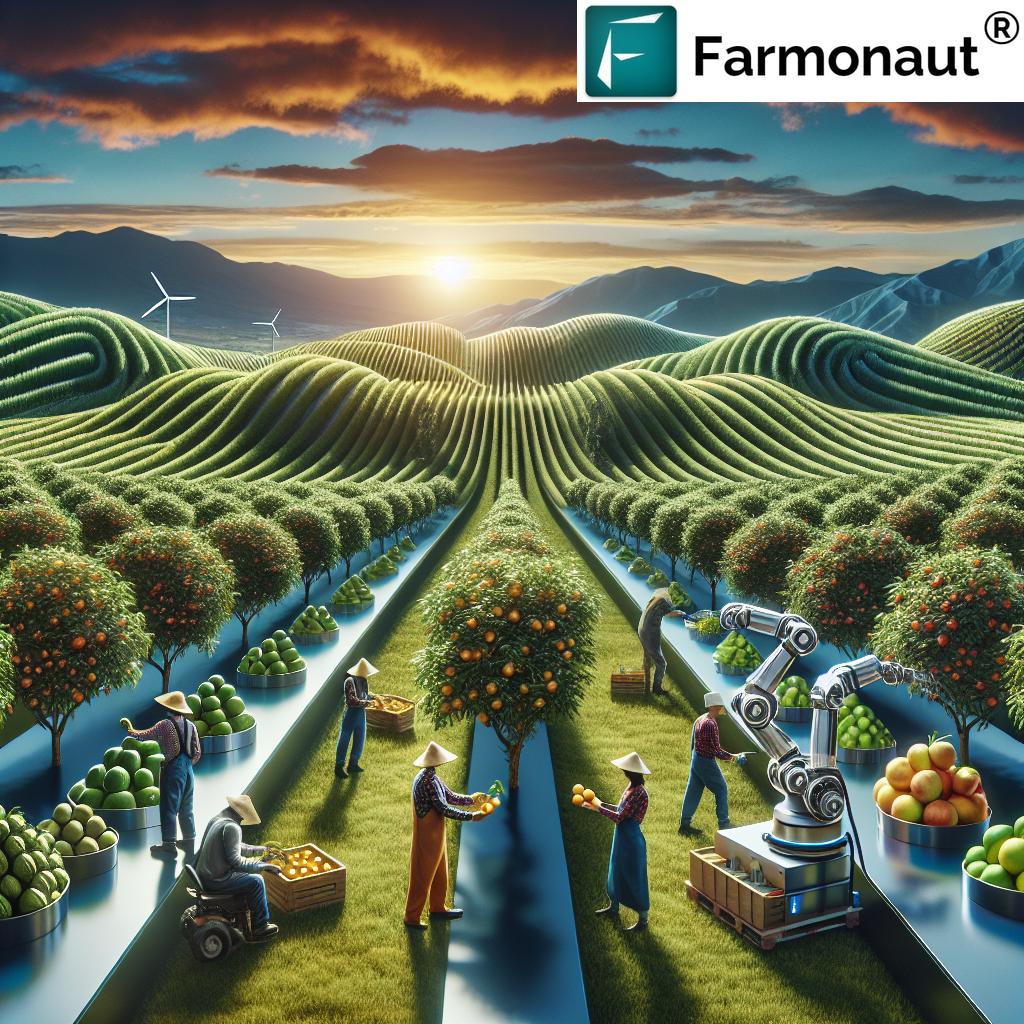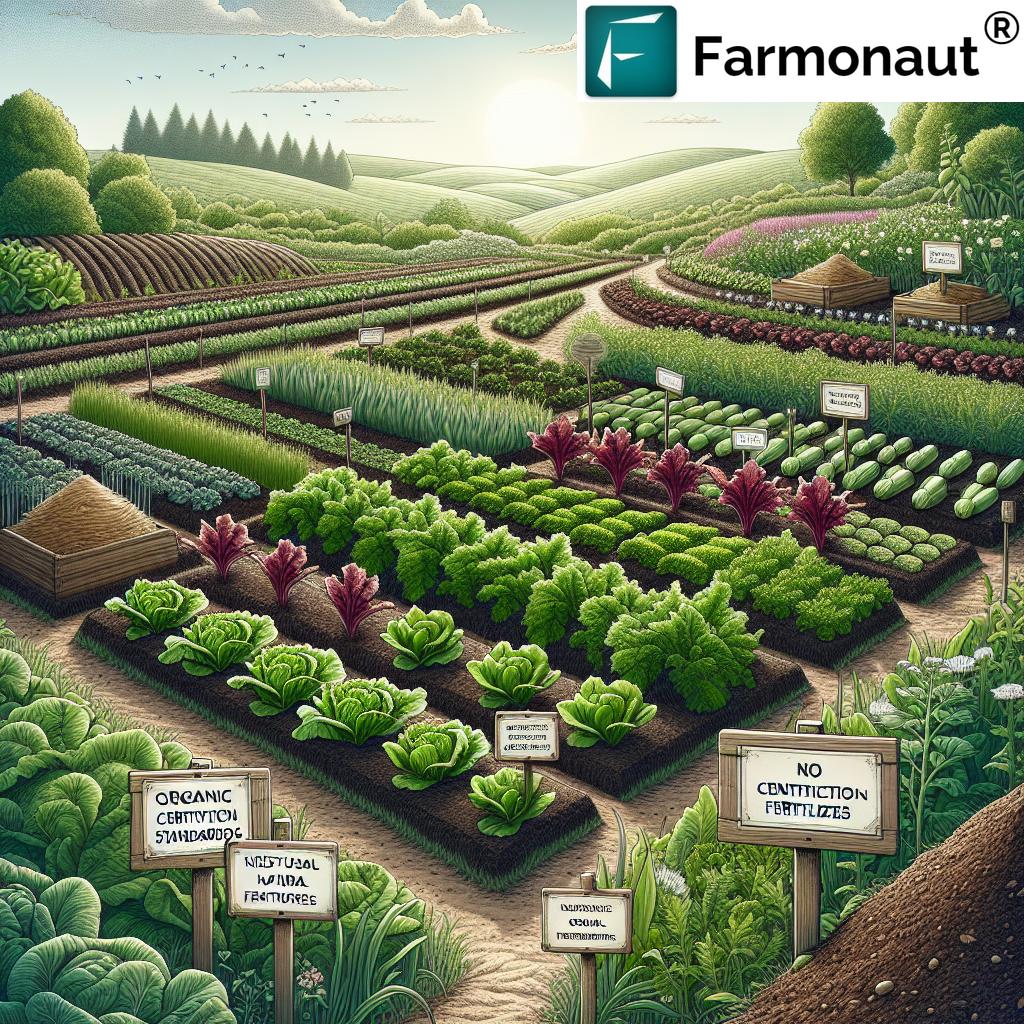Blockchain Supply Chain Traceability in Agro Sector 2025: How Technology & Innovation Are Reshaping Global Agriculture
“By 2025, over 30% of global agro supply chains are projected to use blockchain for traceability and transparency.”
Introduction: Why Traceability and Blockchain Matter in Agriculture Supply Chain Jobs
Agro-supply chain management continues to be a cornerstone of global food security and economic stability, especially as we enter 2025. With consumers demanding greater accountability for food safety, sustainability, and ethical sourcing, the need for end-to-end traceability in agriculture supply chains has become more critical than ever. As technologies evolve— not least of which is blockchain supply chain tracking— the way we manage products, data, and compliance is undergoing a profound transformation.
In this guide, we explore:
- The challenges inherent to traditional agriculture supply chains
- How blockchain in supply chain traceability boosts security, efficiency, and trust
- The rising demand for specialized jobs in this sector
- The future landscape of agro-supply chain management and sustainability
The Changing Landscape of Agro Supply Chains in 2025
The year 2025 marks a pivotal period in agriculture. Agro-supply chain structures, which were once characterized by complex, fragmented, and often inefficient systems, are being overhauled by digital technologies, blockchain-enabled platforms, and the integration of IoT solutions.

Agro supply chains now extend across every continent, linking farmers, processors, distributors, retailers, regulators, and consumers through global networks. The pressure to ensure transparency and compliance with safety standards, quality certifications, and ethical sourcing is ever-increasing. At the heart of this evolution is the move towards advanced traceability and digital transformation.
Key Challenges in Traditional Agriculture Supply Chains
Traditional agriculture supply chains have long been plagued by certain recurring challenges:
- Complexity: Multiple handoffs and decentralized ownership across processing, transportation, storage, and retail stages.
- Fragmentation: Disconnected record-keeping and a lack of unified data systems, resulting in visibility gaps along the chain.
- Vulnerability to Fraud & Contamination: Counterfeit food and adulteration are difficult to detect and eradicate in traditional systems.
- Traceability Delays: Identifying the origin and movement of products can take hours or days—sometimes longer—during food safety recalls or disease outbreaks.
- Regulatory Challenges: Meeting compliance and standards for safety and sustainability is increasingly stringent, costly, and difficult to verify promptly.
One of the critical deficiencies lies in the ability to track products across every node of the supply cycle. This gap limits swift response to critical issues such as:
- Food safety contamination
- Quality degradation from inadequate storage/transport
- Supply disruptions caused by climate events or geopolitical tensions
“Blockchain traceability can reduce food recall times by up to 80%, revolutionizing agricultural supply chain safety.”
Why Traceability Is Critical in Agro Supply Chains
Traceability in agriculture is now far more than a regulatory checkbox— it is a key competitive advantage that protects both public health and industry reputation. Its value, especially in 2025, emerges across several dimensions:
- Food Safety: To swiftly track and contain contamination risks, outbreaks, and recalls.
- Transparency: Consumers in today’s market insist on knowing the origin, composition, and ethical standards of their food.
- Sustainability: Traceability validates sustainability certifications and supports eco-friendly sourcing.
- Quality Assurance: Monitor processing steps, transportation conditions, and prevent degradation or spoilage.
- Fraud Prevention: Blockchain technology in chain traceability combats food fraud and counterfeit labeling.
In short, traceability bolsters trust between all stakeholders—from farm to fork—while enabling regulatory compliance and facilitating premium pricing for verified products.
How Advanced Technologies Enhance Agro-Supply Chain Traceability
The journey toward robust agro-supply chain traceability has been shaped by the rapid adoption of digital technologies:
- IoT Sensors & Satellite Imagery: Satellite and IoT sensors deliver real-time insights on crop health, weather conditions, soil status, shipment progress, and much more. Digital platforms analyze these data sources to optimize logistics and reduce waste.
- Cloud-Based Dashboards: Dashboards present integrated analytics for managers, allowing for actionable insights and real-time decision-making on supply chain management.
- AI-Driven Predictive Analytics: Artificial Intelligence leverages big data for forecasting, risk mitigation, and strategic planning across agricultural cycles.
- Blockchain Ledger Technology: Immutability, transparency, and decentralization make blockchain technology a game-changer for traceability and security in global supply chains.
For instance, blockchain agriculture supply chain traceability links IoT sensor data, satellite imagery, and manual entries into a seamless record for every stage of the agro-supply chain—from farm to consumer.
You can learn more about actionable insights and combining AI with satellites by visiting our Large-Scale Farm Management solution for streamlined resource management across massive acreage in agriculture.
Imagine monitoring coffee or honey products directly at the source with satellite-enabled data—creating a direct line of sight for stakeholders to verify quality, certifications, and ethical practices instantly.
The Role of Blockchain in Agriculture Supply Chain Traceability
The integration of blockchain technology with supply chain management is among the most transformative advancements shaping the future of agriculture in 2025. Here’s how blockchain in supply chain traceability fundamentally changes the game:
- Immutability and Tamper-Proof Records: Once entered, data of products, processing steps, and shipments cannot be altered or deleted—protecting trust and preventing fraud.
- Decentralized Participation: All stakeholders—from farmers, distributors to retailers and regulators—can input and verify data independently, eliminating information bottlenecks.
- Real-Time Transparency: Anyone, including consumers, can track and verify the origin, movement, and certification status of food products instantly.
- Regulatory Compliance: Blockchain simplifies reporting and verification for audits, safety standards, and international certifications.
- Efficiency & Cost Reduction: By eliminating manual paperwork and reducing the time required for tracking and verification, blockchain-driven systems increase operational efficiency and lower costs.
A coffee producer in Kenya can now ensure that every shipment, from harvest to processing and overseas distribution, is recorded with accuracy and is visible to global stakeholders—elevating trust and allowing for premium market positioning.
Blockchain-driven platforms, such as our Traceability Solution, offer comprehensive control of agricultural supply chain traceability—securing authenticity and regulatory compliance from farm to fork.
Comparative Table: Blockchain-Based Traceability vs. Traditional Supply Chains
| Key Parameter | Traditional Supply Chains | Blockchain-Enabled Supply Chains |
|---|---|---|
| Traceability Speed | Hours to days for full tracking; often manual/paper-based | Minutes; instant via integrated digital systems (up to 90% faster) |
| Transparency Level | Moderate; relies on trust in centralized intermediaries | High; 40–60% more transparency from open, auditable ledger |
| Food Safety Compliance | Reactive, slow recall processes | Proactive; reduces recall times by up to 80% |
| Operational Efficiency | Manual, siloed records; frequent duplication of effort | Digital integration reduces errors and redundancy (30–50% improvement) |
| Estimated Cost Reduction | Costly audits, regulatory reporting, fraud, and waste | Lower compliance costs and less waste (up to 25% reduced overhead) |
| Fraud & Counterfeit Prevention | Vulnerable to counterfeiting and intentional mislabeling | Tamper-proof records proactively prevent fraud/forgery |
| Consumer Trust | Dependent on brand and third-party assurances | Directly verifiable; consumers can check certifications instantly |
Farmonaut at the Forefront: Integrated Traceability, Blockchain, and Satellite Data
At Farmonaut, we recognize the critical importance of traceability, security, and sustainability in modern agriculture supply chains. Our platform synergizes satellite imagery, AI, blockchain-based traceability, and data analytics to help you:
- Monitor crop health and soil conditions with unmatched precision
- Leverage real-time weather and environmental insights for proactive decision-making
- Track shipments, processing steps, and storage with blockchain-verified data
- Comply with regulatory standards, obtain certifications, and prove sustainability claims
- Access our app across Android, iOS, and web platforms for seamless integration into your supply chain workflows
What sets our traceability solution apart in 2025 is the ability to provide a single source of truth that is immediately auditable, secure, and trusted by all—from farmers and businesses to governments and consumers worldwide.
Explore our Carbon Footprinting feature—a unique tool for environmental impact monitoring and sustainability compliance in agriculture, invaluable for meeting the rising tide of eco-conscious market demands.
For financial institutions and agri-lenders, our satellite-based verification in Crop Loan and Insurance solutions revolutionize fraud prevention and streamline insurance processing, empowering stakeholders industry-wide.
Developers and businesses seeking seamless blockchain supply chain tracking integration can access our Farmonaut Traceability and Satellite Data API. Consult our Developer Documentation for implementation details.
Businesses involved in large-scale logistics or equipment management can boost operational efficiency through automated tracking, task assignment, and resource optimization with our Fleet Management platform.
The Rise of Specialized Agriculture Supply Chain Jobs in 2025
With the proliferation of advanced traceability technologies, the demand for agriculture supply chain jobs is experiencing a paradigm shift. Newly valued roles include:
- IoT Device Managers: Oversee sensor deployment and data quality in digital farming environments
- Supply Chain Data Analysts: Interpret big data streams for actionable insights, optimizing chains
- Blockchain Platform Specialists: Ensure the security, integrity, and audit-readiness of blockchain traceability systems
- Compliance and Quality Control Officers: Navigate global regulatory requirements and standards certifications
- AI & Satellite Integration Specialists: Manage the integration of real-time AI and satellite-powered advisory dashboards
These professionals are at the heart of transforming how supply chain management delivers food safety, sustainability, and economic stability in 2025 and beyond.
For comprehensive capacity building and learning, administrators can access guides like Farmonaut For Admins which equips managers and operational leads with tools for orchestrating scaled data-driven agriculture.
Future Models: Interoperable Platforms and Consumer Empowerment
The future of agro-supply chain traceability is one of integration and interoperability. We are rapidly moving towards:
- End-to-End Digital Platforms: Seamlessly merging IoT, AI, and blockchain supply chain tracking for real-time, actionable intelligence
- Consumer-Facing Traceability Applications: Allowing consumers to scan, verify, and confirm origin, quality, and sustainability claims before every purchase
- Insurance and Financing Innovations: Verification of supply chain data facilitating dynamic insurance rates and agricultural credit access
- Global Data Standardization: Making blockchain-based traceability systems interoperable across borders
For those interested in conservation and sustainable plantation, our Crop Plantation & Forest Advisory delivers specialized support for ecological restoration and agro-forestry project traceability.
Frequently Asked Questions (FAQ)
What is blockchain supply chain tracking in agriculture?
Blockchain supply chain tracking is a system that leverages distributed ledger technology to record every step of an agriculture product’s journey—ensuring traceability, security, and transparency across the entire agro-supply chain.
How does blockchain improve food safety and compliance?
Blockchain storage is immutable and tamper-proof. This means any issue—whether contamination, fraud, or quality concern—can be rapidly traced to its source. This enables swifter recalls, reduces risks, and supports compliance with safety standards and regulations.
What advanced technologies work with blockchain traceability?
IoT sensors, satellite imagery, AI-based dashboards, and digital analytics all feed data into blockchain traceability systems, enabling precision agriculture, resource optimization, and real-time supply chain management.
Why are agriculture supply chain jobs changing?
The introduction of blockchain in supply chain traceability and other digital innovations creates a new ecosystem of specialized jobs focused on data analytics, IoT management, compliance, and AI-system integration in agriculture.
How can businesses get started with digital traceability?
Businesses can use platforms such as Farmonaut’s Traceability Solution, which integrates satellite, AI, and blockchain for comprehensive agro-supply chain visibility and compliance.
What is the impact of blockchain supply chain tracking on costs?
Implementing blockchain traceability reduces operational costs by increasing efficiency, lowering compliance and audit expenses, and slashing losses due to waste, errors, or fraud across the supply chain.
Conclusion: Strengthening Agro-Supply Chains for 2025 and Beyond
As we look to 2025 and beyond, the integration of blockchain supply chain tracking, advanced traceability technologies, and data-driven platforms is reshaping the fabric of the agro-supply chain. Stakeholders across the sector— from farmers and distributors to global retailers— gain transparency, accountability, and the ability to address the most serious challenges in food safety, sustainability, and market competitiveness.
With Farmonaut at the helm of this transformation, delivering satellite-powered, blockchain-integrated, and AI-enhanced solutions, the future of agriculture supply chain management is one of empowerment, efficiency, and trust.
The world is demanding safer food, sustainable practices, and transparency at every step—from farm to fork. Blockchain agriculture supply chain traceability stands at the intersection of technology and innovation, providing a robust framework that supports growth, regulatory compliance, and market leadership in the global agricultural sector.
Ready to experience next-generation supply chain transparency? Explore our solutions below:










